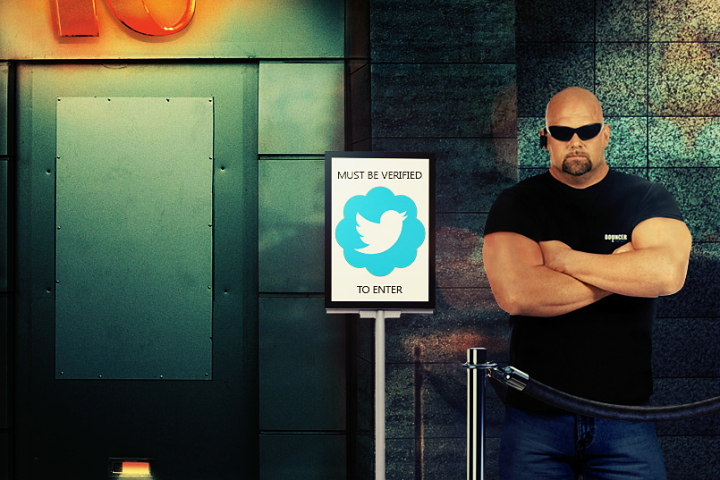
There are two types of people in this world: The verified and the unverified. Those lucky souls Twitter chooses to bestow that little blue mark upon are on a whole other level than us normals; they are those of the paid-to-tweet variety, those called “social-media experts” who fought their way to 25,000+ followers, those whose fame lands their tweets in weekly “celebrities say the darndest things!” round ups.
Just face it: They are the specials, and our hilarious and insightful Twitter musings will go unnoticed in their shadows. Now Twitter is giving them yet more power: The ability to ignore the rest of us!
We’re like the ugly stepchildren Twitter has to love and shelter but only because the state says so.
“We’re be rolling out the ability for verified users to go to their Connect tab on the Web and toggle between mentions in three categories,” Twitter says. “All, filtered, and verified.”
“Selecting ‘Filtered’ will show mentions based on an algorithm we use to filter out spam, and choosing ‘Verified’ means they’ll only see mentions from other accounts.”
Twitter says this new feature is being rolled out to its favorite children because they’re involved in such a large number of conversations. Humblebrag much?. “Ooooh it’s just soooo hard being soooo popular! Help me Twitter, help me! Save me from my adoring masses!”
I’m no Twitter celebrity, but I would appreciate this feature, thanks for not asking, Twitter. My measly 1,751 followers spam the bejesus out of me, too. I’d love a tool that filters this out so I don’t waste time trying to decide if @hle0xor8er is a real person or if that link is B.S.
Unfortunately, I’m neither a celebrity nor a politician; I don’t own a ridiculously cute pet or tweet pictures of my unmentionables. I’m not smart enough to ever make that timely parody account first and try as I have might, my hilarious pieces of repartee with Twitter elite have never landed me a spot in any “the best responses to ___” listicles. Thus, I – like so many of you – am banished to the dark corners of Twitter.
We’re like the ugly stepchildren Twitter has to love and shelter but only because the state says so. We don’t get any special treatment; we get the hand-me-downs, months after The Verifieds have enjoyed wearing them out.

Furthermore – it’s the principle of the thing! (Why yes, I did just indignantly stand straight up, pointing my index finger for emphasis – which is what anyone is required to do when saying, “It’s the principle of the thing.”) Twitter is constantly selling itself as the public square, where everyone is welcome to participate,true democratic discussion in action!
Now there’s a caste system, because you just introduced a feature so that verified users can sit atop their towers and ignore our pleas for but 140 characters of their attention. Here’s an idea: If you don’t want your fans to have quick and easy text-based access to you … don’t get a Twitter account! Isn’t that the entire idea? Do celebrities and notable figures need a mass public communication tool so that they can talk to each other? Go use Google+, I swear, no one will find you guys.
The Verified can keep their special privileges and Twitter, it’s OK: You can, deep down, love them more. Fine, secretly give them little benefits (which I imagine are things like satin Twitter logo team jackets with their handles printed on the back and invitations to secret parties in Jack Dorsey’s underwater castle), but don’t publicly insult all of us by rolling out features to them first.
I will resort to whining: It’s just not faaaaaaaaair.


